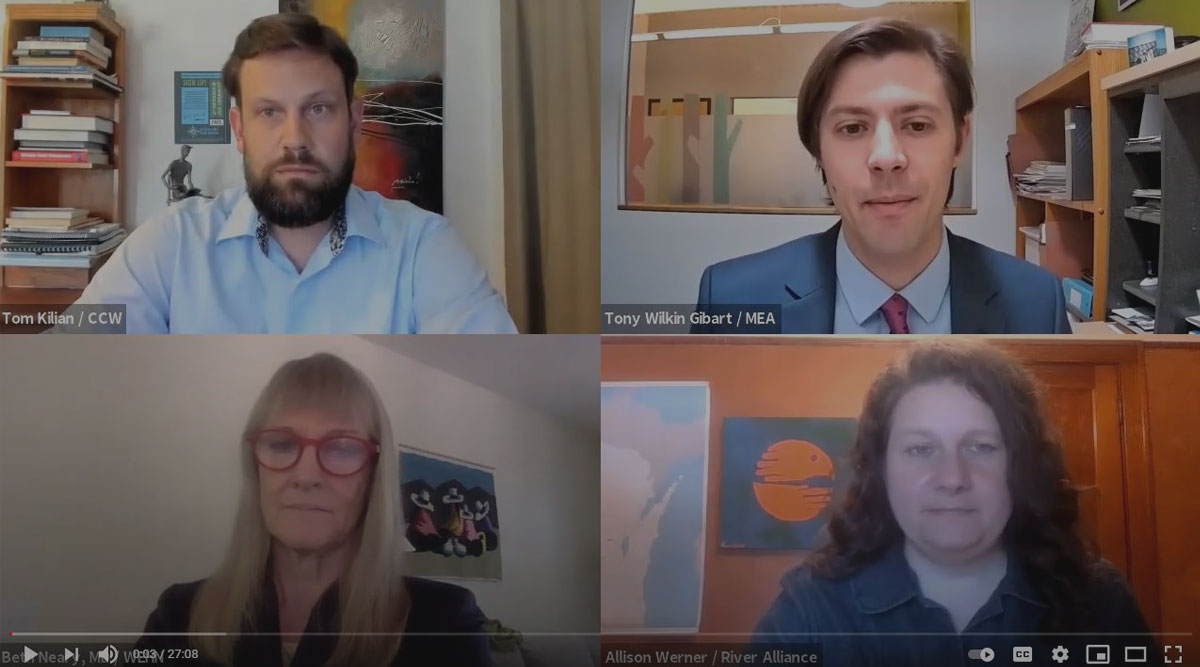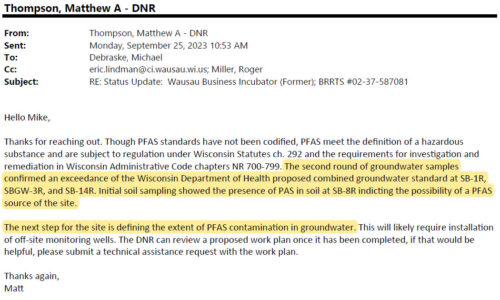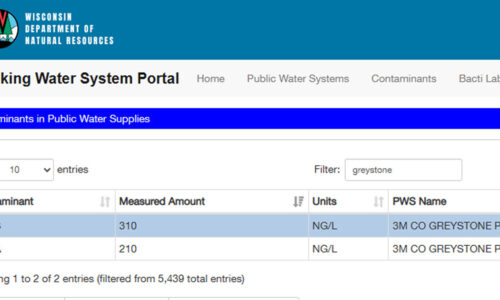
CCW, Wisconsin Environmental Groups, Seek to Intervene in the WMC Lawsuit Filed Against DNR
- Group News, Media, PFAS
- June 22, 2021
Environmental and Public Health Groups Announce Legal Action to Defend Communities from Toxic Chemical Lawsuit Brought by Wisconsin Manufacturers & Commerce
June 14, 2021 Press Release
Midwest Environmental Advocates (MEA) filed a request to intervene in a lawsuit initiated by Wisconsin Manufacturers and Commerce that threatens to fundamentally undermine the Spills Law—a bedrock environmental and public health protection that keeps Wisconsinites safe from exposure to PFAS and other hazardous substances.
The lawsuit was filed in February by Wisconsin Manufacturers and Commerce and Leather Rich, Inc., who are suing the Wisconsin Department of Natural Resources (DNR) in an effort to limit the agency’s ability to investigate environmental contamination and require responsible parties to clean up contaminated sites. MEA’s request to intervene was filed in Waukesha County Circuit Court on behalf of a group of environmental and public health advocates who are seeking to participate in the case in order to defend their interests and the interests of their members.
The group includes Citizens for a Clean Wausau, Clean Water Action Council of Northeast Wisconsin, River Alliance of Wisconsin, Wisconsin Environmental Health Network and Doug Oitzinger, a former mayor of Marinette.
“WMC’s agenda prioritizes industry profits at the expense of public health and natural resources,” said Tony Wilkin Gibart, Executive Director of Midwest Environmental Advocates. “MEA filed a motion to intervene on behalf of our clients because we refuse to sit by while WMC attempts to dismantle one of Wisconsin’s most significant environmental and public health protections.”
Doug Oitzinger, a former mayor of the City of Marinette, said, “We’re not talking about theoretical legal arguments here. The court’s decision will have real-world consequences. Under the Spills Law, DNR is
providing critical assistance to people in Marinette, Peshtigo, La Crosse and other communities devastated by PFAS contamination. If WMC prevails, that assistance would vanish—the required well testing, the orders for cleanup and remediation—it would all come to a halt. No other law gives DNR the authority to address PFAS pollution.”
“The outcome of this case could have implications for virtually every community in the state, not just those facing PFAS contamination”
Tom Kilian, Citizens for a Clean Wausau
“The outcome of this case could have implications for virtually every community in the state, not just those
facing PFAS contamination,” said Tom Kilian of Citizens for a Clean Wausau. “Here in Wausau, the Spills Law has enabled us to address industrial contamination that impacts residential areas, public parks, and the Wisconsin River. Without the Spills Law, we’d have no legal recourse for holding polluters accountable. Everyday people would be forced to figure out how to deal with soil and water contamination on their own.”
“Our request to intervene in this case is about defending the legal protections that keep Wisconsin families safe,” said Beth Neary, M.D., Co-President of Wisconsin Environmental Health Network. “Responding to hazardous substance spills and cleaning up contaminated soil and groundwater is critical to protecting public health.”
Allison Werner, Executive Director of River Alliance of Wisconsin, said, “Preserving the integrity of the
Spills Law is crucial to DNR’s ability to protect Wisconsin’s rivers and lakes. WMC’s assault on the Spills Law is a significant threat to Wisconsin’s water resources, to public health, and to all the sectors of our economy—including tourism and agriculture—that rely on clean water.”
“When it comes to regulating PFAS and other toxic chemicals, we need to move forward, not backward,”
said Dean Hoegger, President and Executive Director of Clean Water Action Council of Northeast Wisconsin. “The idea that the Spills Law could be gutted and that we could return to a time when polluters weren’t held accountable for cleaning up contaminated soil and water—it’s unthinkable. Unfortunately, that’s exactly what’s at stake in this lawsuit.”





